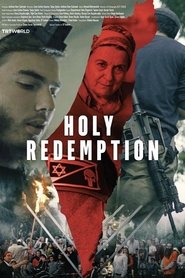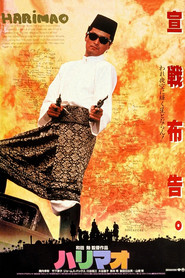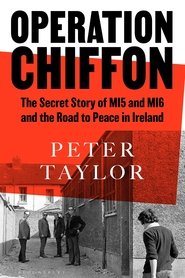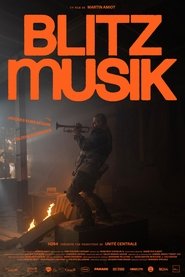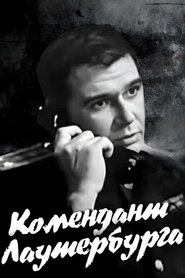Top Rated War Movies on Tub Tv - Page 293
-
Holy Redemption: Stealing Palestinian Lands
2024
star 10Filmed on location in the West Bank in the immediate aftermath of the Gaza genocide that began on October 7, this documentary sheds light on the alleged support provided by the Israeli state and army to radical groups. Through the perspectives of both perpetrators and witnesses, it recounts the terror and land theft carried out by radical illegal settlers against Palestinians. -
An Arrow Through the Heart
2024
star 3During the Ming Dynasty's Jiajing period, Deputy General Yang Zhen's family is killed by the pirate Chi Hu, but his son Yang Hai escapes. Yang Hai, mastering archery skills from Yan Xiaoping, a descendant of the famed archer Yan Shiba, rescues captured villagers and seeks revenge against the pirates. -
Whispers From an Empty Room
2024
star 4A minimalistic animation on war, life, and the human condition. -
It's Bisan from Gaza and I'm Still Alive
2023
star 10Bisan Owda, journalist and influencer collaborator of the media AJ+, is at the forefront of reporting by filming with her phone, the daily life of Palestinians to the world since October 7, 2023, the start of the war and devastation from Gaza. Owda's storytelling style and resilience have captured international attention, with his work widely covered by international media. She received an Emmy Award in 2024 for her outstanding coverage of the ongoing conflict in Gaza. -
THE IMPACT | Groundbreaking Documentary
2024
star 9Discover the unsettling truths behind the world's most pivotal events in "The IMPACT." This powerful documentary dives deep into the shadows of global politics and societal control, linking past and present events like never before. From the chilling orchestration behind the 9/11 attacks to the hidden forces in the Ukraine-Russia conflict, "The IMPACT" uncovers the sinister threads woven through decades of deception. Featuring shocking revelations and thought-provoking insights, this film is a must-see for anyone ready to see the world as it truly is, beyond the facade of mainstream narratives. Prepare to have your perspective forever changed. -
Harimao
1989
Harimao
1989
star 8A movie about Yutaka Tani, also known as " Malay Tiger Harimao, " who was active on the Malay Peninsula during the Pacific War -
Tiny Commandos
2019
Tiny Commandos
2019
star 10Camp Skinner has been infiltrated by an enemy camp! Suzie, Claire, Sam, and Timmy must embark on a mission to liberate three captured sectors from the evil Sector Guards and take back their camp! -
Právom lásky
1984
-
the songs they leave that echo through
0000
star 9In the battle of tyranny, a wounded man who is accompanied by a woman flees the bloodshed. They find themselves lost from the hostility of war, in the wilderness, and with themselves– until they meet someone they try to escape. -
Napalm Girl. The Journey of a Photo
2023
star 9Through exclusive testimonies and clandestine videos, this documentary gives voice to courageous women in Iran who risked their lives to share their stories and to prominent women in culture, art and academia who were forced to leave their beloved country. They are a guiding force, able to explain through their individual, perilous and often tragic experiences, the drastic shift of a nation, caught between patriarchy, deep economic crisis, corruption, rigid religious and ideological beliefs. -
Coyote's Bloodbath
2024
-
The MI5 Spy and the IRA: Operation Chiffon
2023
star 7Journalist Peter Taylor reveals the story of how a former undercover MI5 officer put his life and career on the line to encourage the IRA to end its violent campaign and embrace politics. -
Gallipoli from Above
2012
Gallipoli from Above
2012
star 8Gallipoli from Above: The Untold Story is the true story of how a team of Australian officers used aerial intelligence, emerging technology and innovative tactics to plan the landing at Anzac Cove. It is now nearly 100 years since the landing and hundreds of books, movies and documentaries have failed to grasp the significance of the ANZAC achievement. Instead, the mythology has clouded the real story of how these two influential Australian officers took control of the landing using every innovation they could muster to safely land their men on Z beach. -
Blitzmusik
2024
Blitzmusik
2024
star 5It’s wartime. Gus and Lars, two enemy lieutenants in search of victory, find themselves in an abandoned music school. Both are locked in a classroom full of musical instruments. Only a wall separates the two soldiers. The attacks are fierce. When Gus runs out of ammunition, he taunts his enemy by banging on the snare drum on the wall. Lars retaliates with a trombone, making an unpleasant noise. A melody emerges as the exchange of sounds continues. The duel gradually turns into a duet… -
The Battle for Midway
1999
star 5One thousand miles from nowhere lies lonely outpost of coral and sea called Midway. It was here in 1942 that the United states and Japan fought the greatest naval battle of all time, and changed the course of World War II. Join Titanic discoverer Dr. Robert Ballard as he, a team of experts, and four World War II veterans return to Midway to do the impossible: to locate at least one of the five downed aircraft carriers, including the U.S.S Yorktown. Hear the amazing accounts of the four men who narrowly escaped with their lives, and watch as they pay their final respects to their fallen comrades three miles below the waters of Midway. -
Commandant of Lauterburg
1969
star 8Follows the service of Lieutenant Colonel Lubentsov as commandant of the German city of Lauterburg in the first days after the end of the Great Patriotic War. -
Scrambled.
0000
Scrambled.
0000
star 8A scrambled eggs cooking tutorial show, turns violent. But will the cook ever notice? -
Trail of the Caribou
2016
Trail of the Caribou
2016
star 10CBC News Newfoundland Labrador's documentary entitled “Trail of the Caribou” traces the journey of the brave men of the Newfoundland Regiment. Created to mark the 100th anniversary of the Battle of Beaumont-Hamel, the movie gives a detailed account of the role the Regiment played in the First World War, putting faces to the story. Since the War, Caribou statutes were constructed in Europe to memorialize the significant places the Newfoundland Regiment fought. Trail of the Caribou transports the viewers to these places to trace the footsteps of the Newfoundland soldiers. -
What If the War Ends Tomorrow
2023
star 1Russia invaded Ukraine on February 24, 2022. This film tells the story of women who are "Survivors", not "Victims", and who witnessed to the cruelty of war.
 Netflix
Netflix
 Amazon Prime Video
Amazon Prime Video
 Apple iTunes
Apple iTunes
 Apple TV Plus
Apple TV Plus
 Disney Plus
Disney Plus
 Google Play Movies
Google Play Movies
 Paramount Plus
Paramount Plus
 Hulu
Hulu
 HBO Max
HBO Max
 YouTube
YouTube
 fuboTV
fuboTV
 Peacock
Peacock
 Peacock Premium
Peacock Premium
 Amazon Video
Amazon Video
 The Roku Channel
The Roku Channel
 AMC+
AMC+
 Kocowa
Kocowa
 Hoopla
Hoopla
 The CW
The CW
 Vudu
Vudu
 Starz
Starz
 Showtime
Showtime
 PBS
PBS
 Pantaflix
Pantaflix
 FXNow
FXNow
 Tubi TV
Tubi TV
 Kanopy
Kanopy
 Comedy Central
Comedy Central
 Crunchyroll
Crunchyroll
 Microsoft Store
Microsoft Store
 Redbox
Redbox
 Sun Nxt
Sun Nxt
 ABC
ABC
 DIRECTV
DIRECTV
 Crackle
Crackle
 Fandor
Fandor
 Plex
Plex
